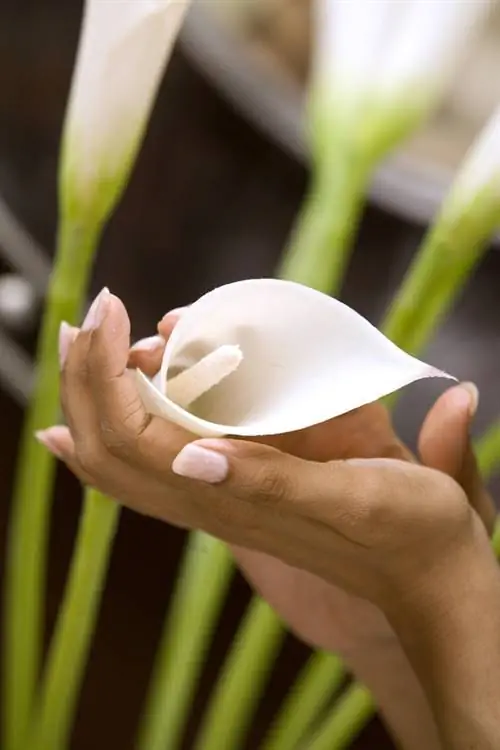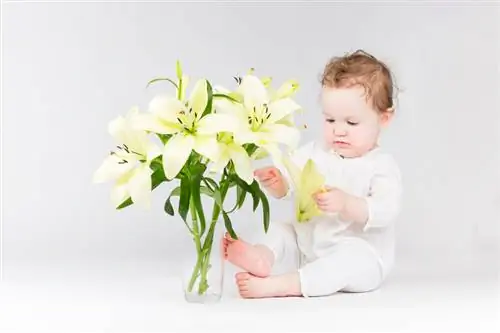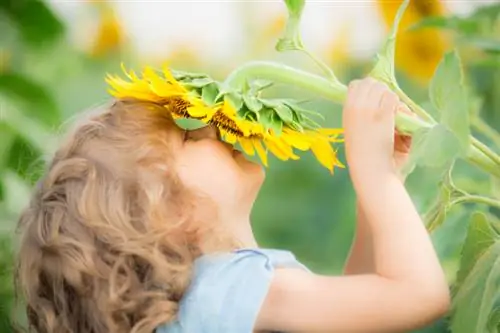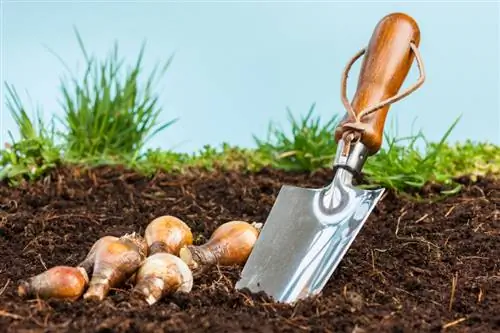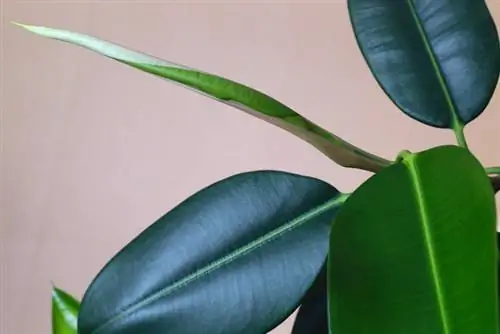- Author admin leonars@hobbygardeners.com.
- Public 2023-12-16 16:46.
- Last modified 2025-01-23 11:20.
The rumor persists that the dried leaves and flowers of the hydrangea have an intoxicating effect. Trying to smoke the parts of the plant is not safe, as the hydrangea, like some other ornamental plants, contains highly toxic prussic acid compounds. You can recognize this by the typical bitter almond aroma that you can smell when you rub a hydrangea leaf between your fingers.

Are hydrangeas poisonous to people and pets?
Hydrangeas are not dangerous for people and pets in small quantities because the toxins they contain, such as hydrogen cyanide, hydrangin and saponins, are found in low concentrations. If plant parts are accidentally consumed, a visit to the doctor or veterinarian is still recommended.
Poisons of Hydrangea
The hydrangea contains various toxins in relatively low concentrations:
Prussic acid glycosides
All parts of the hydrangea plant contain hydrogen cyanide in varying concentrations. This active ingredient destroys the red blood cells so that oxygen is no longer transported. At high doses it causes convulsions and attacks of suffocation. In the worst case, death from heart failure can occur.
Hydrangin, hydrangenol and saponins
These toxins are particularly contained in the leaves and flower buds of the hydrangea. The active ingredients cause feelings of anxiety and dizziness when ingested in large quantities. They also trigger contact allergies in sensitive people.
How dangerous is the plant for children and pets?
The concentration of toxins in all parts of the plant is relatively low, so hydrangeas planted as ornamental trees are rather harmless. Since the leaves and flowers taste bitter when chewed, children are also at little risk.
Healing effect
It is interesting that the hydrangea is considered a valuable medicinal plant in its original homeland. There the root is used as a remedy for bladder and stone problems as well as for cystitis and prostate problems. A mother tincture with the active ingredient of hydrangea is also used in homeopathy.
Tips & Tricks
Despite the relatively low concentration of toxins in the hydrangea, as with all plants, you should make sure that small children playing in the garden do not snack on the hydrangea. If your child or pet has accidentally eaten parts of a plant, we recommend that you consult your family doctor or veterinarian as a precaution.


